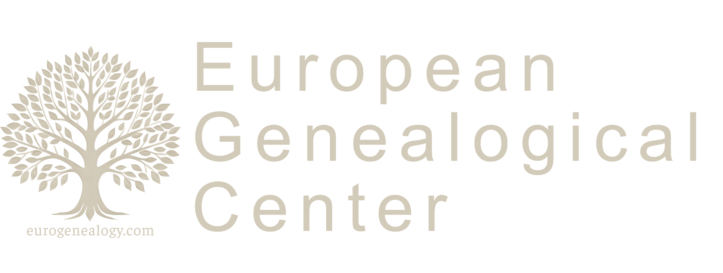Genealogical research in Moldova — Searches in the archives of former Bessarabia
Discover your family history back to the 17th century
Family tree reconstruction in Moldova and document search for obtaining Romanian citizenship
Genealogical research in Moldova opens unique opportunities for tracing ancestors and restoring lost information about the family. Many people seek to learn their family history, confirm nationality, or find relatives who were lost during historical events. The European Genealogical Center offers professional services for reconstructing family trees, searching archival records, and compiling genealogical charts. We conduct research in Moldova, Ukraine, and neighboring countries, helping our clients uncover the mysteries of their past. The main sources of genealogical research are parish registers, confession lists, revision lists, and population censuses covering periods from the 18th century onward. Archival materials provide information about birth, marriage, death, as well as the social status and place of residence of ancestors. Our specialists carefully analyze genealogical records and trace ancestors by their place of residence.
Special attention is given to questions of repatriation and confirmation of national origin. Many clients approach us for confirmation of their ancestors’ residence in Bessarabia and Greater Romania, which serves as a legal basis for obtaining Romanian citizenship. We assist in collecting the necessary documents to verify these facts. In addition, clients may order the creation of a family book containing archival records, photographs, and a written history of the family. Working with archival sources requires a professional approach and deep knowledge of historical processes. Our specialists study materials in state and regional archives as well as use modern genealogical services. Thanks to international experience and careful document verification, we ensure the reliability of the results. Regardless of the complexity of the search, we aim to restore missing links in the family tree and help you learn more about your ancestors and origins.
Sources of genealogical research in Moldova
One of the most important sources for reconstructing family trees in Moldova are parish registers, which recorded baptisms, marriages, and burials. Orthodox parishes also kept confession lists, documenting parishioners who underwent annual confession. Another invaluable source is the revision lists—the population censuses of the Russian Empire (1718–1858), which covered the Bessarabian Governorate, documenting household members and their property status. This "genealogical triad"—parish registers, confession lists, and revision lists—forms the foundation of genealogical research in Moldova during the 19th century. The region was ethnically diverse, with Orthodox Christians, Catholics (mostly Poles), Lutherans (German settlers), and Jews, who made up a significant proportion of urban populations. Records of these groups are preserved both in Moldovan archives and in Ukrainian archival holdings, and they provide a broad basis for reconstructing individual family histories. In many cases, these documents also reveal social mobility, migration, and changes in cultural identity across generations.


In addition to these main sources, researchers also turn to other archival materials that make it possible to reconstruct the lives of people who lived in Bessarabia and Moldova in past centuries. These include personal files from the 19th–20th centuries related to education and service, service records and family lists of officials, plans and inventories of real estate, conscription and recruitment lists, and tax records. For the 20th century, civil registry documents, household registers, and local property books preserved in rural and municipal archives are especially valuable. For deeper research, old censuses and petitions from the 17th–18th centuries, preserved in central archives, are also used. In multiethnic Moldova, a rich body of genealogical sources has survived, covering Orthodox Christians, Catholics, Jews, German colonists, and other religious communities. Thanks to this diversity, genealogical research in the region allows not only to reconstruct family trees but also to trace the social and economic development of families over centuries. These materials help researchers recreate not just individual lineages but also the broader context of regional history and identity.
Neighboring countries where we conduct research
Examples of our research
Below you can review examples of research reports received by our customers:
Prices for genealogical services in Moldova
You can find a detailed price list and description of all services of our center here
Prices for genealogical services in Moldova
Genealogical research
From €1000
Tracing family history back to the 17th century
Biographical search
From €400 to €1500
Establishing the life story of an individual and their close relatives
Nationality confirmation
From €200 to €1000
Identifying details about a person’s ethnic origin
Document search
From €100 to €500
Obtaining certificates, parish registers, and civil registry records
Family history book
From €2500
Creating a unique publication describing the genus history
Family history website
From €2000
Development of a personal website dedicated to your family’s history
Submit a request, and we will contact you shortly
You can also reach us directly by sending an email to: european.genealogical.center@gmail.com or writing to us in Telegram

european.genealogical.center@gmail.com
© 2025
All rights reserved
All rights reserved
Contact us:

